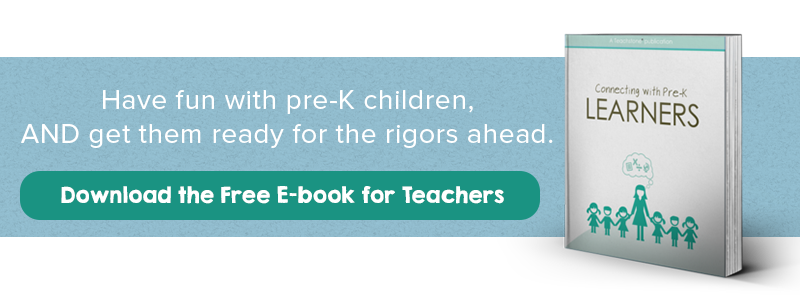
As we know, teachers often struggle with Instructional Support—and the focus of their professional development often lands here. While Instructional Support is worth improving, it's also important to remember that ALL interactions can affect child outcomes.
Although we categorize interactions into domains, dimensions, and indicators to better measure and understand them, the heart of the matter is RELATIONSHIPS. Relationships form the foundation for all the interactions that support child outcomes. Interactions happen all the time—whether they’re one-on-one or in groups, between students, or between a teacher and student.
Each moment-to-moment exchange has an outcome. As children watch responses from their teachers, they are learning how to respond themselves. The effectiveness of teacher responses can impact children’s outcomes.
Here are a few glimpses into one child’s day that paint a picture of how interactions can impact child outcomes:
- Scenario: Jay arrives at school, and his teacher, Ms. Scrivens walks over, kneels down, and greets him warmly, "Good morning, Jay! I like your new fleece jacket!"
- Outcome? I’m welcome here. (Positive Climate)
- Scenario: After she greets him, Ms. Scrivens explains to Jay that he can choose a center to play after he hangs his coat. She reminds him he can stay there until snack time.
- Outcome? I know what I need to do and I can choose for myself. (Behavior Management, Productivity, Regard for Student Perspective)
- Scenario: Jay chooses the block center. While he plays with blocks, Ms. Scrivens comments on the structure, and notices that the child is having a hard time stacking the blocks to make a tower and is becoming frustrated. She acknowledges his frustration and helps him build a base with larger blocks.
- Outcome? My teacher cares about me and will help me when I need help. (Teacher Sensitivity)
- Scenario: As Ms. Scrivens helps Jay build his tower, the teacher asks, “Why do you think this tower is falling over?” “What do you think we could try to make it stay up?” (Concept Development, Quality of Feedback)
- Outcome? I can solve problems!
Finally, did you notice how LANGUAGE fits in all of of these interactions?
When you get right down to it, you can see that interactions are built on feelings, guiding, and thinking, and they all start in a moment.
It’s what we DO with those moments that matter!

